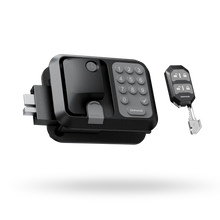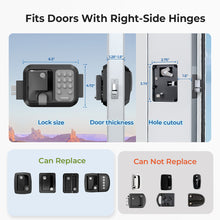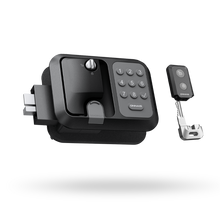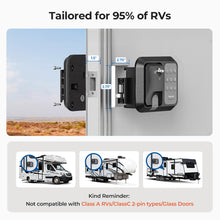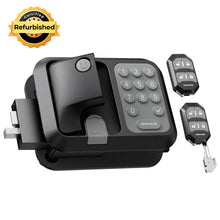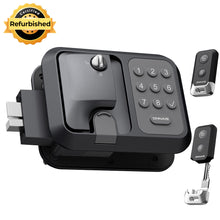5 Clear Signs You Need to Replace Your RV Locks
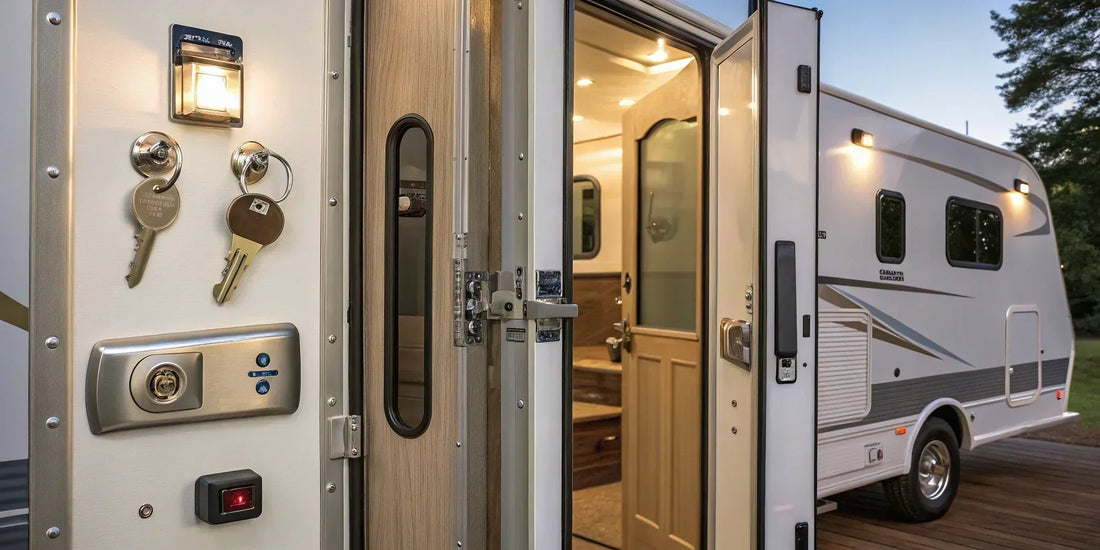
When you're out on the open road in your RV, security is just as important as the scenic views. Your RV locks are your first line of defense, protecting your belongings and your peace of mind. But how do you know when to replace RV locks? Like any component, RV locks wear out and can become less effective over time. Recognizing the signs you need to replace RV locks is crucial for maintaining your security. This guide will help you identify common issues and understand your options for RV lock replacement.

Don't wait until it's too late to address issues with your RV's security. Here are five undeniable signs that it's time for an RV lock replacement:
1. Your Key Isn't Working Smoothly (or at All)
You might notice:
Sticking or grinding: The key feels rough as it turns.
Difficulty inserting: The key doesn't slide in easily.
Not engaging: The key turns, but the lock mechanism doesn't activate.
Bent or broken key: While the key itself might be the issue, it often points to a stiff or faulty lock cylinder that caused the key damage.
A faulty lock mechanism leaves your RV vulnerable. This often means you need a full RV door lock replacement, not just a new key.
2. Visible Wear and Tear or Damage
Look out for:
Rust or corrosion: Especially common in humid climates or if your RV is stored outdoors. Rust can seize up internal components, making the lock unreliable or impossible to use.
Cracked or broken housing: Physical damage to the lock's exterior can expose its internal mechanisms to the elements or tampering.
Loose parts: If the lock wiggles or rattles when you operate it, internal components might be loose or broken. This can affect the lock's ability to secure properly.
These issues apply not only to your main RV entry door lock but also to RV baggage door locks and RV compartment locks. A broken RV door lock is an open invitation for trouble.
3. Your RV's Locks Are Old or Outdated (Low Security)
Consider:
Standard wafer locks: Many older RV lock brands use simple wafer tumblers that are notoriously easy to pick or bypass.
Lack of deadbolts: Some older RV door locks only have a simple latch, offering little resistance against forced entry.
4. You've Experienced a Security Incident (Attempted Break-in or Theft)
Even if your lock wasn't fully breached, an attempted break-in or any security incident is a clear signal that your current locks aren't adequate. The lock might be damaged from the attempt, or it simply wasn't strong enough to deter the intruder.
Evidence of tampering: Scratches around the keyhole, pry marks on the door or frame, or a bent latch.
Successful theft: If someone managed to gain entry, a complete overhaul of your RV door lock system is essential.
In such cases, consider not just replacing the existing lock with a similar model, but upgrading to a more secure RV door lock, perhaps a smart RV door lock with alarm features or a password RV door lock.
5. You Want to Upgrade for Convenience or Modern Features
Sometimes, there's nothing "wrong" with your current lock, but you simply want the benefits of modern technology and convenience.
Tired of keys? A keyless entry RV door lock or RV door lock with keypad eliminates the need for physical keys, perfect for large families or when you're fumbling for keys in the dark.
Remote access: A digital RV door lock or smart RV door lock can be controlled via a smartphone app, allowing you to lock/unlock remotely or grant temporary access codes.
Unified keying: If you have multiple locks on your RV (entry, baggage, cargo), you might want to replace them with a system that uses a single key or code for all.
Choosing Your New RV Lock Replacement Kit
Once you've decided it's time for an upgrade, you'll find a wide range of RV lock replacement kits available.
Consider these factors when choosing:
Type of lock: Standard mechanical, keyless, or smart?
Compatibility: Ensure the new lock fits your existing door cutout. Check RV lock dimensions and look for a direct replacement RV door lock.
Security features: Deadbolts, anti-pick mechanisms, alarm functions.
Installation difficulty: Many are DIY-friendly, but some may require professional help.

